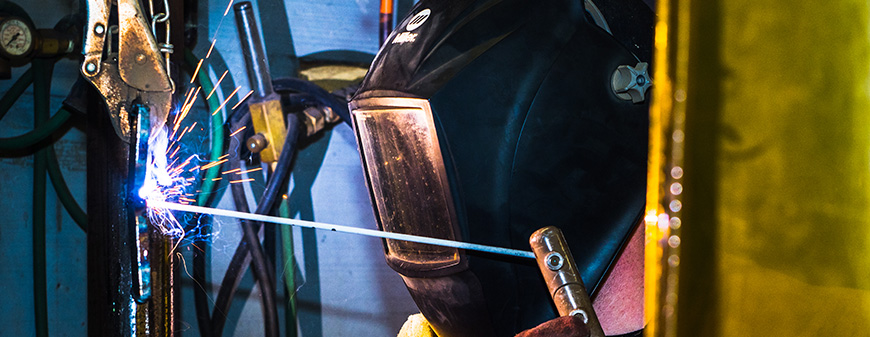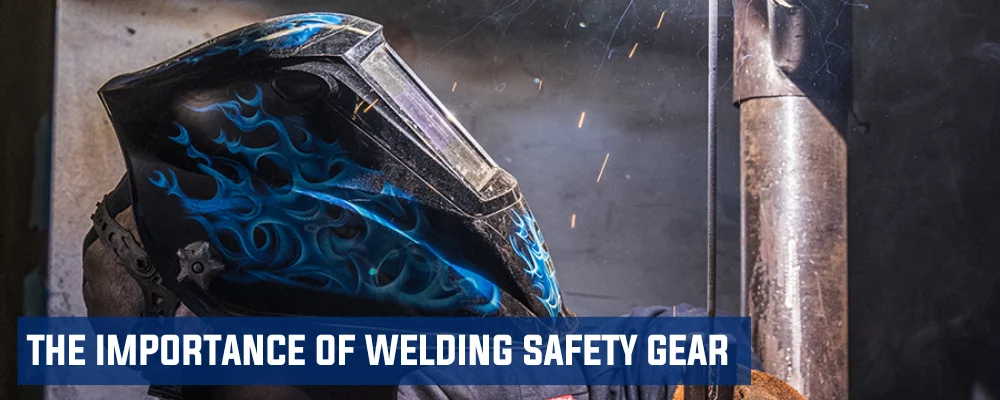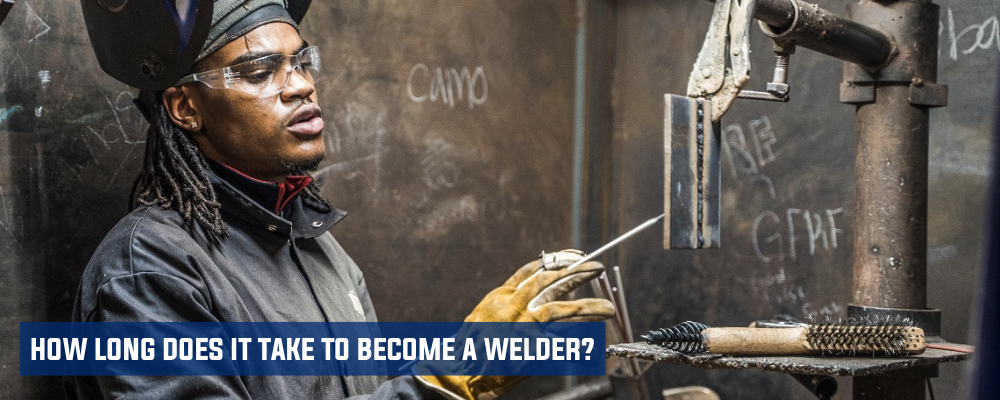Welder Job Description Duties
If you’re asking yourself, what is a welder, the answer is that a welder’s job entails a variety of job duties. Their particular duties may be dependent upon on what industry they are working in or what level of experience they have. Following is a selection of typical welder job tasks and responsibilities:- Joining metal parts in flat, vertical, or overhead positions
- Studying engineering drawings, blueprints, sketches, and material safety data
- Calculating dimensions of metal parts to be welded
- Laying out, positioning, aligning, and securing metal parts
- Inspecting workpieces for defects and checking for specifications
- Igniting welding torches and striking arcs
- Selecting welding methods and required equipment
- Cleaning welded metal off excess weld, slag, or spatter
- Filling holes or hammering out bulges and bends
- Mixing and applying protective coatings
- Maintaining equipment and machinery
Where Do Welders Work?
If you are interested in a Welding Program, you may be wondering where welders work. According to the U.S. Bureau of Labor Statistics (BLS), the majority of welders work in manufacturing. They work both indoors and outdoors, depending on the exact industry or welding project. More specifically, welders usually work in the following industries:- Construction
- Industrial Maintenance & Repair
- Shipbuilding
- Automobile Manufacturing & Repair
- Aerospace Applications
- Railroad Manufacturing
- Electrical Power Generation, Transmission & Distribution
- Natural Gas Distribution
- Pipeline Transportation
- Pulp, Paper, and Paperboard Mills
Interested in Learning More About Welding?
Fill out the form below to receive info about our career training programs.
How Many Hours Do Welders Work?
Most welders work full-time. Overtime is common, especially on time-sensitive projects like certain construction jobs. In that case, welders may have a weekly workload that exceeds a typical 40-hour week. Since many manufacturing plants operate around the clock, they frequently have two or three 8- to 12-hour shifts per day. This means that some welders also work evening and weekends.A Day in the Life of a Welder
A typical day in the life of a welder may start with reviewing blueprints and other instructions to determine what welding methods or sequences are required for the job. A welder then may lay out the metal parts and align them properly for assembly. To make sure that the welding project will be completed correctly, the welder may measure dimensions and verify that they correspond with the specifications he or she has been given. Often, welders discuss the project with co-workers or supervisors. In some cases, the material needs to be preheated or cleaned before it can be weld. Once that preparatory work has been finished, the welder may choose the welding equipment, including the welding torch. He or she would also put on protective gear, such as a welding helmet or gloves, to shield themselves from burns and contaminants. When it’s time to start welding, the welder will ignite the welding torch and strike an arch. It is very important to be accurate while welding. Arm-hand steadiness, control precision, and multi-limb coordination are crucial. Upon completion of the weld, the welder may trim excess material and remove any slag or spatter. In addition, he or she may need to clean and disassemble the welding equipment if need be. If the welder has to repair a piece, he or she might have to fill cracks, smooth out imperfections, or seal holes. Sometimes, metal pieces need to be reshaped to conform to the given specifications. Finally, the welder may need to apply protective or decorative finishes. Welders undertake several tasks on their job. They need both physical and technical skills to succeed in this career. While duties and workdays can vary from industry to industry or employer to employer, the basic tasks remain very similar. As a result, welders have the flexibility to employ their skills in a variety of fields. SOURCES- https://www.bls.gov/ooh/production/welders-cutters-solderers-and-brazers.htm#tab-2
- https://www.onetonline.org/link/summary/51-4121.06
- https://www.bls.gov/ooh/production/welders-cutters-solderers-and-brazers.htm#tab-3
- https://www.bls.gov/oes/current/oes514121.htm
- https://www.onetonline.org/link/summary/51-4121.06


